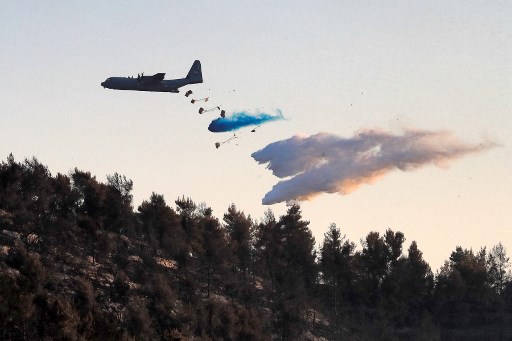
JERUSALEM, Undefined (AFP) — Wildfires that have ravaged woodland in the hills west of Jerusalem since noon on Sunday have finally been brought under control, the Israeli fire service said on Tuesday.
“After 52 hours battling the flames, all of the fires around Jerusalem have been brought under control,” a statement said.
Hundreds of families had been evacuated from 10 villages west of the city over the three days. The firefighters said there were no casualties, but the blazes burned 2,500 hectares of forest.
On Monday, the situation was such that the government asked for international help to put out the fires.
The outbreak began on Sunday, and sent palls of acrid smoke billowing over the holy city.
On Tuesday, Palestinian firefighters joined their Israeli counterparts in a gesture hailed by Defence Minister Benny Gantz who used Twitter to send his thanks in Arabic.
“I thank Palestinian Authority president Mahmud Abbas for the initiative to send firefighters to help Israel… to save human lives and our common interests,” Gantz tweeted.
Israeli Prime Minister Naftali Bennett overflew the affected area by helicopter, and thanked the firefighters “for their dedication and professionalism”.
Around 1,500 firemen battled the flames on the ground and 20 specialised aircraft flew more than 400 sorties to drop water and fire retardant.
On Monday National Fire and Rescue Commissioner Dedi Simchi said the fires had not started spontaneously.
“The fire broke out as a result of human activity,” he said. “If it was neglect, if it was recklessness, if it was intentional, if it was arson, we don’t know.”
Forest fires in the searing summer heat are common in Israel, as they are in other countries bordering the Mediterranean.
This year deadly wildfires have broken out in Algeria, Cyprus, Greece, and Turkey. Algeria was hardest hit, with at least 90 people killed.
Morocco and Tunisia have also been affected.
© Agence France-Presse








